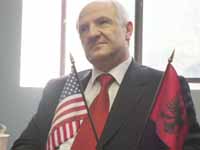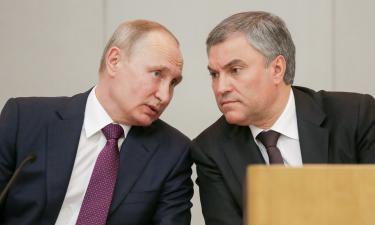Kosovo leaders say upcoming talks are last attempt in resolving province's future
Kosovo's leaders said they would participate in new negotiations - but they warned Monday that, beyond that, they will accept no further delays in settling the province's final status. And they pledged not to retreat from their demand for independence.

Their statement comes amid calls from Western powers and Russia for four months of talks between the ethnic Albanians and Serbia.
President Fatmir Sejdiu told the province's assembly that the new talks would be the last attempt to win support for independence, a move Serbia vehemently rejects. Russia supports the Serbian position.
"We consider that this will be the last delay and we will not accept any other deadlines," Sejdiu told the lawmakers.
"We stress that Kosovo's independence is not negotiable," he said.
U.N.-sponsored talks failed to settle the province's future, largely because of Russia's threat to veto any endorsement of Kosovo's independence. Since then, attempts to hammer out a deal between Belgrade and Pristina have moved to the so-called Contact Group for Kosovo, comprised of diplomats from the U.S., Britain, France, Italy, Germany and Russia.
U.S. and European officials have agreed to 120 days of talks. The EU has named Wolfgang Ischinger, a German diplomat, to represent it. He will join envoys from the U.S. and Russia.
Ethnic Albanian leaders will participate but have showed no signs of compromise.
"In order to move ahead ... we need to sit down once again, and for the last time," Hashim Thaci, the former rebel leader turned politician, said in a rare address to the province's assembly. "But Kosovo's independence is not negotiable."
Kosovo formally remains a part of Serbia, but it has been under U.N. administration since 1999, when NATO airstrikes ended then-Yugoslav leader Slobodan Milosevic's crackdown on ethnic Albanian separatists.
Tensions between ethnic Albanians and Serbs in the province remain high.
Former Finnish President Martti Ahtisaari, who mediated yearlong talks, has recommended the province gain internationally supervised independence with broad rights for the Serb minority. His plan is supported by the U.S. and the EU.
Western diplomats and U.N. administrators have expressed concerns that further delays might plunge the province back into violence as the ethnic Albanian majority grows restless in its demand for independence.
In turn, officials in the northern, Serb-dominated part of the province have threatened to secede if Kosovo is allowed to break away from Serbia.
The province's leaders have backed away from threats to declare independence unilaterally and have said they would not do so without U.S. and EU backing.
Subscribe to Pravda.Ru Telegram channel, Facebook, RSS!





